How Russia perfected the art of manipulation on European leadership?
I have a quite strange feeling about European leaders nowadays, especially within the EU. There is always something that is hidden among them. They don't speak out, but they appeared to be. Yes, I'm talking about the leadership of the European Union and its associates. There's something not right on it. I sense this since 2010s, something has changed.
Guess? Am I talking about the increasing right-wing natures? Am I talking about the traditional left-wing groups? Or Russian intelligence in these nations? No. It's more than that. It's about manipulation. And Europe is unprepared to face this round. Russia is quietly conducting agenda, covert and cautious, but with solid results.
Poland
Poland has to be the biggest shock for the European leadership today. Because just only nearly two decades ago, Poland joined the European Union and was seen with the highest potential.
The deterioration was unbelievable because Poland was once a leading front nation fighting against a communist totalitarian regime, which paved way for the eventual collapse of the Iron Curtain. Since the fall of communism, Poland successfully transformed the economy under the shock therapy with a strong rule of law, civilian freedom, effective government and was boosted further when joining the EU in 2004. Now, Poland has one of Europe's largest and most resilient economy, it survived the financial crisis of 2008, promising young democracy and is deemed to be the next Germany.
But in 2015, the Law and Justice Party, also known as PiS (Prawo i Sprawiedliwość), a right-wing conservative party, stunned the continent, coming to power and kicked off a series of crackdowns on state judicial systems. PiS fired judges, replacing the Court with PiS personnel, overhauling the entire civilian governance, leading to the sacking of more than 11,000 civil servants and nearly 300 military officers. PiS also slowly takes control of media in the country, though it did in a quiet way, not like the shocking constitutional and supreme courts' takeovers. The Polish government is also revising the constitution at a slow pace. In foreign relations, it is colliding with Brussels, creating a long-standing siege that seen no side appears to step down.
Hungary
It was hardly a secret when Viktor Orban became Prime Minister of Hungary in 2010. And it has already been eleven years since he returned to power, he first served the position back in 1998 to 2002, where he oversaw Hungary as a NATO member.
However, Orban of 2010s was not similar to Orban of 1998-2002. Orban in 1998 championed democracy, human rights, NATO/EU and freedom. But Orban from 2010 was a complete turn around 360 degrees. He embraced autocracy and started to dismantle the opposition group as well as the takeover of the judicial branch, something that Duda would repeat five years later in Poland. He began attacking media that deemed to be anti-government. His party Fidesz subsequently endorsed nationalism mixed with conservatism and neo-Nazism. Orban removed the name "Republic" from Hungary in 2012, triggering widespread nationwide condemnation. Orban is also trying to seize control in universities and private schools, much to the paranoia. Orban also allied with a lot of oligarchs and billionaires to corrupt the civil servants. He also created uneasy relations with the rest of European Union by promoting policies deemed to be anti-EU values. Though it is temporarily stabilised in 2021, it remains to be seen.
Georgia
Georgia is not a member of the EU and NATO, but they are strong associates to both organisations. Due to the 2008 war between Russia and Georgia, Georgian government persuited radically pro-Western policies. But from 2010s, a political party rose to prominence threatening Georgia's young democracy.
Since 2010s, with the ousting of populist leader Mikheil Saakashvili in 2012, the Dream Party assumed power in a fair and free election. But in just a slow process, Georgia started to sense the returning of authoritarian rule back under Eduard Shevardnadze. The Dream Party began a similar process of judicial takeover, and while maintaining some degrees of freedom of speech, the state began to limit democratic media by trying to undermine the independent TV stations and press. State coverage became apparent in the nation at the expense of independent voices. The process was not known to many before the shocking arrest of opposition leader Nika Melia from United National Movement in February 2021, where the Georgian police violently stormed the headquarter of UNM. Nika Melia had accused the Dream Party of undermining Georgian democracy. This shocking action led to the resignation of Prime Minister Giorgi Gakharia and led to a nationwide protest.
Slovenia
Slovenia is a member of the EU since 2004, and has been credited as one of the greatest success stories of democratisation. But Slovenia has started to feel its democracy under threat of one person: Janez Jansa.
Widely seen as Slovenia's Viktor Orban, Janez Jansa is indulged into a string of controversies by his style of governance. He has reigned Slovenia twice in the past (2004-2008 and 2012-2013), each time of his PM reign saw Slovenia being at the spotlight for his attempt to subdue freedom of speech, his verbal assaults on independent journalists and channels seen anti-government. He also lied numerous times about personal assets and embezzling of funds, leading to trial in 2012 but was acquitted in 2015. He is also a Trump supporter, and a right-wing, too, where his nationalist tones do not sit abode well with the European Union and NATO.
Ukraine
More questionable maybe Ukraine, because in spite of their ongoing conflict with Russia since 2014, Ukraine has elected a figure that, by standard of many opposing parties, resemble much of Donald Trump, bit calmer but less intelligent, in 2019.
Volodymyr Zelensky is the President of Ukraine since 2017. In his inauguration speech, he shocked many Ukrainians by not mentioning how to restore Crimea, Donetsk and Luhansk from Russia. But that's not all. In October 2019, he had been accused of making secret negotiations with separatist rebels in Donetsk and Luhansk that allowing vote deal of autonomy without informing popular opinions about the detail. Then in February 2020, Zelensky further rocked Ukraine by proposing, eventually passing a new media law that limiting further media freedom in the country. This was superseded when police arrest Ukrainian activist Serhiy Sternenko, who was investigating the death of Ukrainian lawyer Kateryna "Katia" Handziuk, triggering question about Zelensky's responsibility on the murder of Katia (Poroshenko was Ukraine's President when Katia was murdered). However, tensions with Russia overshadowed Zelensky's anti-democratic platforms ongoing in Ukraine as the President managed to divert attention to Donetsk and Luhansk for his purposes.
Turkey
Turkey is unique because it is an associate member of EU and a NATO nation, but given how Turkey behaves since 2010s, one can assure that Turkey is vulnerable to many things, including Russia.
The relations between Russia and Turkey began to have radical improvement, not fully, but a resilient process. One is determined by the development of pro-Russian Turkist groups like Tatars and Balkars; one was the 2016 coup in Turkey, which Russian intelligence was perceived to have assisted Erdogan to overturn the attempt, boosted Turko-Russian relations. And it was Putin's inspiration that Erdogan started to turn Turkey into a dictatorship. He modelled after Putin by building a lavish palace in Istanbul (Putin had a secret palace unveiled by Russian opposition leader Alexey Navalny). Erdogan also moved to buy more Russian lethal arms into its stockpile despite objection from the West. Turkey has also been in a quiet path to join the Eurasian Economic Custom that startled the EU. Likewise, Erdogan sided with a number of dictators that were/are backed by Putin, like the deposed Sudanese autocrat Omar al-Bashir and Venezuelan President Nicolas Maduro. Erdogan has also tried to purge the constitution and to extend his power, another Putinist way to authoritarianism for a nation.
Russia may not be always pleased with Turkey, as told by Turkish-Russian confrontation in Syria, Libya and Caucasus. But Putin is happier with Erdogan in charge instead of any Turkish opposition parties.
United Kingdom
Brexit appears to be the biggest question for many. And this has also prompted UK intelligence like MI6 to task about the involvement of individuals linked to Putin, though it stays unclear.
It was believed that throughout the vote of confidence to stay or leave the European Union, the pro-EU David Cameron was afraid of meddling from Russia. This accusation came after Russia was believed of trying to infiltrate to support Scottish independent referendum in 2014. Cambridge Analytica, now disbanded, also played several role in the disinformation campaign. Russian state channels like RT and Sputnik made one-sided reports toward the pro-Brexiteers. Unwittingly, or wittingly, the British government has also shared the blame when the British authorities were too generous to invite Russian tycoons into their country, discounting potential risks of Russian dirty money and Putin's inner circle espionages within the Downing Street.
Currently, the investigation is made difficult when Boris Johnson, now British PM, and the whole Conservatives (Tories), blocked report about Russian interference, so we can't really explain what's going on within Number 10.
What has Putin had on the upper hand?
It's very suspicious to not ignore Russian government's interests in making these European nations more bending to the Kremlin's aspirations. But there is one significant trait that must be taken into account about Moscow's clandestine agenda.
Putin doesn't endore these leaders because of its right or left ideology, but rather creating a selective group of leaders that would serve Moscow's self-interests, cultivating relations with various groups and makes sure that they won't slide out of Russian government's demand. For instance, Erdogan is a neo-Ottomanist left-wing, but Viktor Orban and Andrzej Duda are right-wing - but they have matched a lot of Putin's expectation: willing to commit troubles for the whole Europe, but stand like dolls when it comes to Russia.
One of the most notable example I have long apprehended is the strangely weak reactions from Poland and Hungary toward Russia's Nord Stream 2 connecting with Germany. We know that Germany has a quite special position on the relations with Russia, being one of the few EU nations to be received positively by Russian nationals. But at least Germany is not always favourable to Putin. Yet, the Polish President Duda, after criticising Germany and Russia (comparing it to Molotov-Ribbentrop agreement in 1939) for few weeks, fell silent once the construction resumed. But Duda is louder when he is accused of backtracking Poland from democracy, challenging or insulting EU fellowships. Orban is also the same.
Then again, we know Poland, Ukraine and Georgia aren't pro-Russian, they have negative opinions on Russia in general. But somehow these people elected leaders that slowly consolidating powers by undermining independent constitutional systems, just as Putin expected. Notably Georgia, where the Dream Party was founded by Bidzina "Boris" Ivanishvili, a billionaire whose fortunes made in Russia since 2000s and a close aide to Vladimir Putin, came to power since 2012, Georgia has lost its status as a "free" to "partly free". In Ukraine, Volodymyr Zelensky was renowned as a movie star in Russia and even filming freely in the Kremlin before returning to Ukraine seeking adventure as a President, to be now ridiculed in Russian websites as inept.
And talking about Britain and Turkey, these nations are not friendly to Putin's Russia either, but they're easily misled. I'll take my stake with the UK: British government was warned about potential risk of Russian government interference since 2014 Scottish referendum, even recommended Number 10 to investigate Roman Abramovich, Chelsea FC's owner and Putin's close ally. Yet British government subsequently dismissed the threat, ultimately resulting them tricked to leave the European Union. RT and Sputnik also did a good job on igniting nationalism, the British pride and independent sentiment, the old British imperialism that contributed to the UK voting out of the EU. Boris Johnson now stands weak and remains less likely to deal with Russia because he is trying to cover up his connection with Putin's henchmen.
Just to summarise these nations making it crippy to recount.
Can Europe withstand again?
Yes. But it is a very staggering process. As Europe reacted too late, Russia has already perfected their Arts of War. Sun Tzu quoted "The Supreme Art of War is to subdue the enemy without fighting". Putin did. Because he knew that a bloody frontal war would be fatal, he needed to make his moves without firing a live ammunition.
Now, we have seen Putin fortifying its military fortresses in the Arctic and increasing deployment in the border with Ukraine, many people are seeing Russia trying to wage war on Ukraine and to dominate the cold north. However, I don't believe Russia will invade Ukraine, not even long term.
But Russia will be likely to continue to play the chess, and disunity between EU and NATO nations are exacerbating the situation. Again, we see that, Europe is weakening within its own toward the deceitful Russian regime. The Brexit is a warning sign. Turkey's rebellion is another sign.
I used to visit Russia. I loved the culture and its civilisation. But when I arrived at the Kremlin, I always feel something very deep, secretive and not much to be released. Then, I also questioned, did Russia really have 150 million people? In the end, I was informed by my guide who lives in Russia for 10 years that, actually, Russia never has a tradition of recording its population, and that many towns in Russia actually have more people than recorded, but ignored by the corrupt police force and state data. This lurched my eyes, and I became certain that Russia is lying. If they can even lie about its own population, which is three times larger than 150 million, then it can also lie to the rest of Europe.
This is what manipulation be like. And when Europe is busy planning how to combat, Russia has already made another moves. Can they intercept Russian threats? We'll never know...
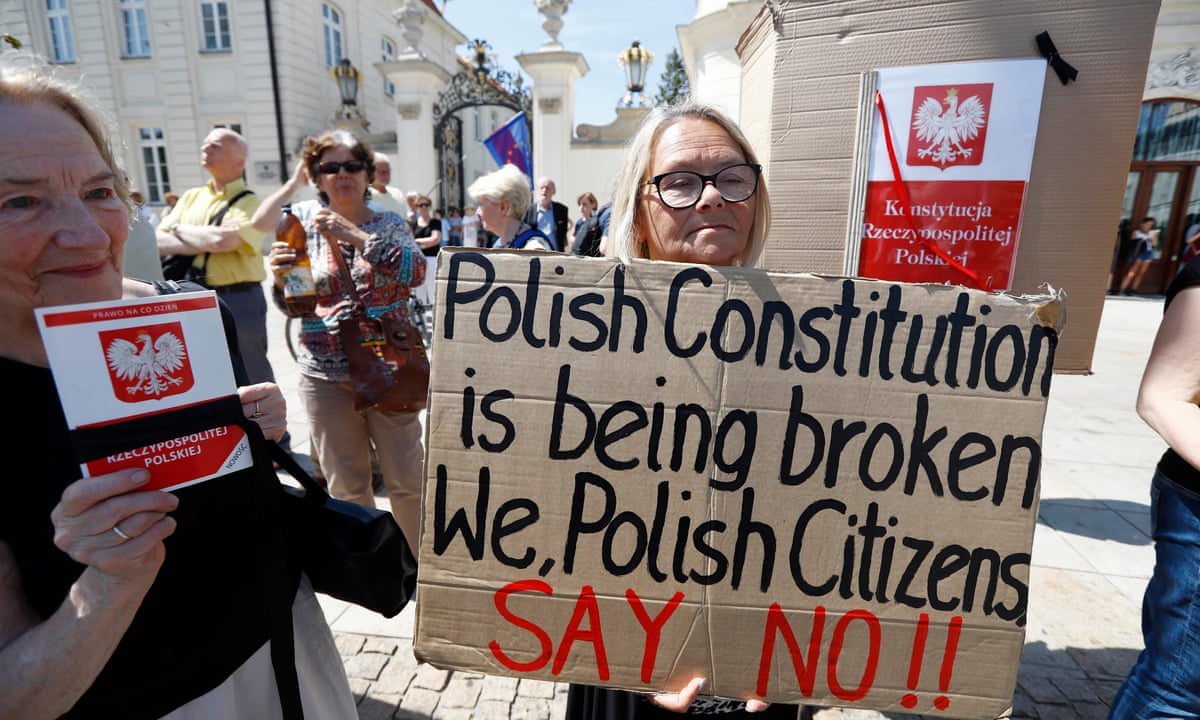
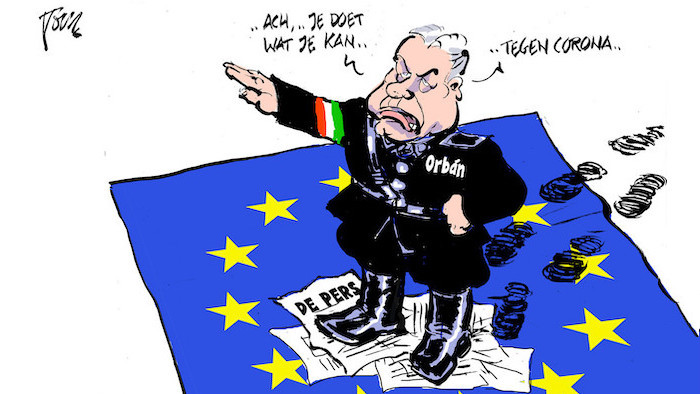
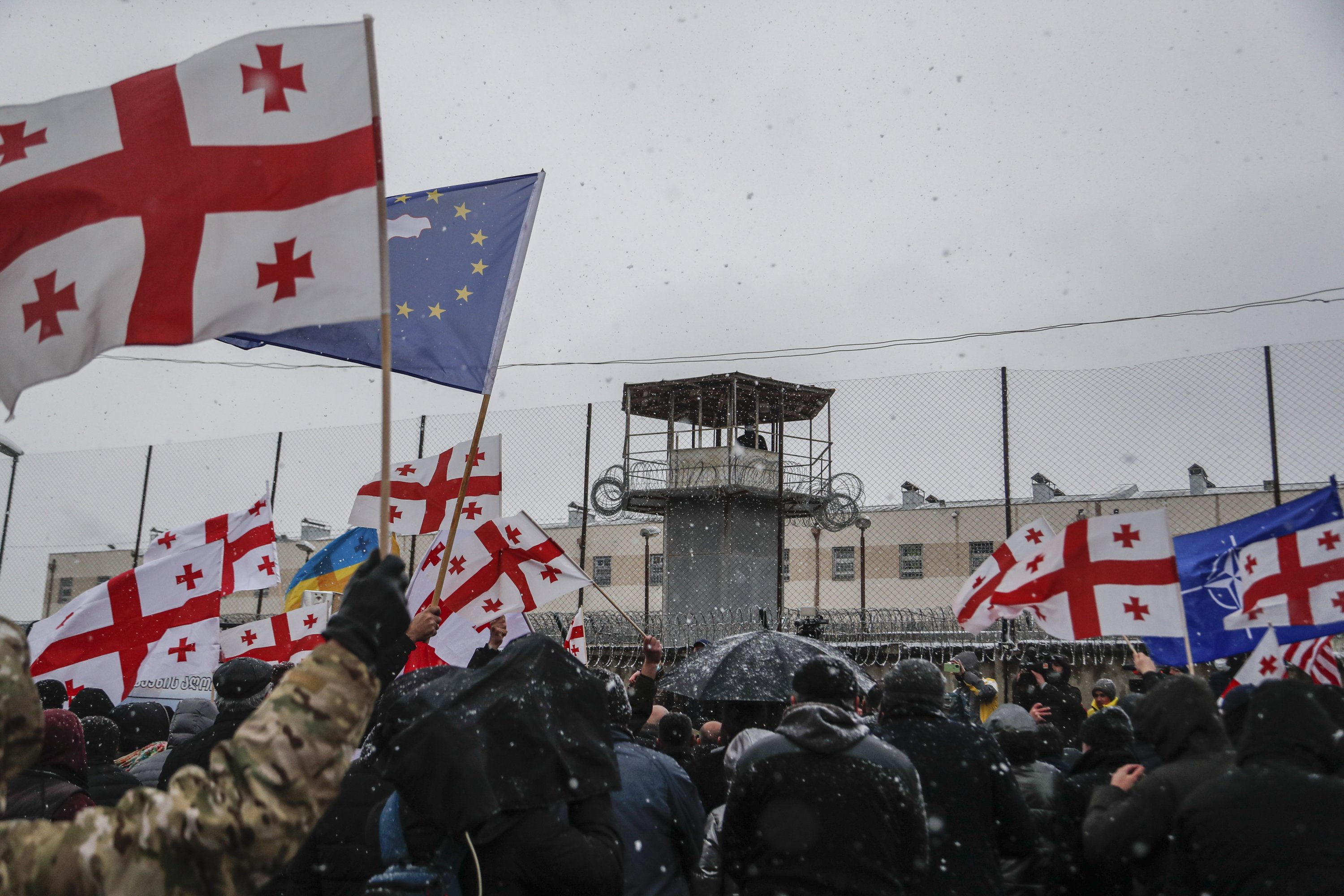



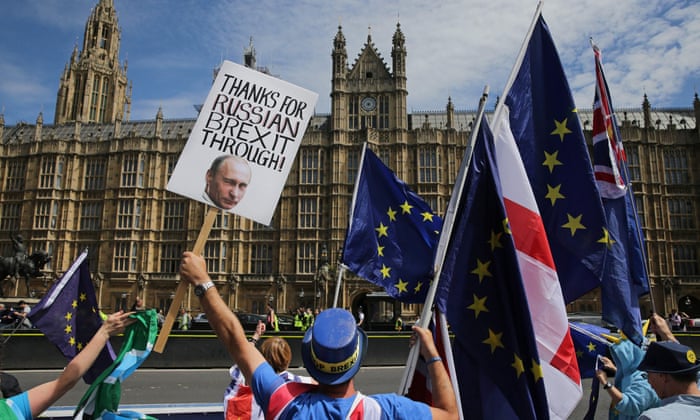
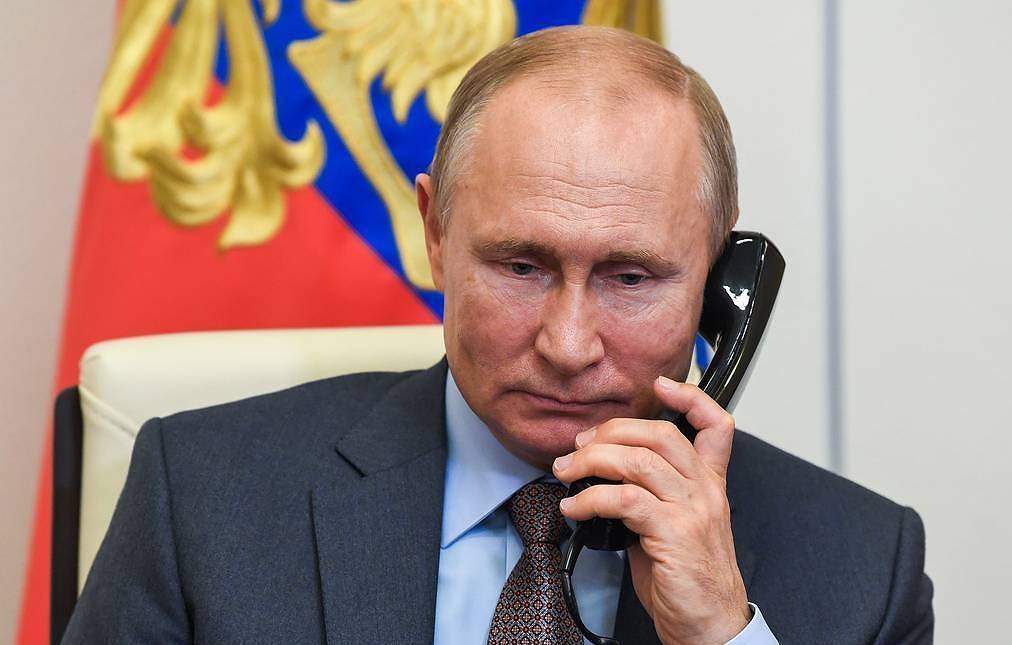
Comments
Post a Comment